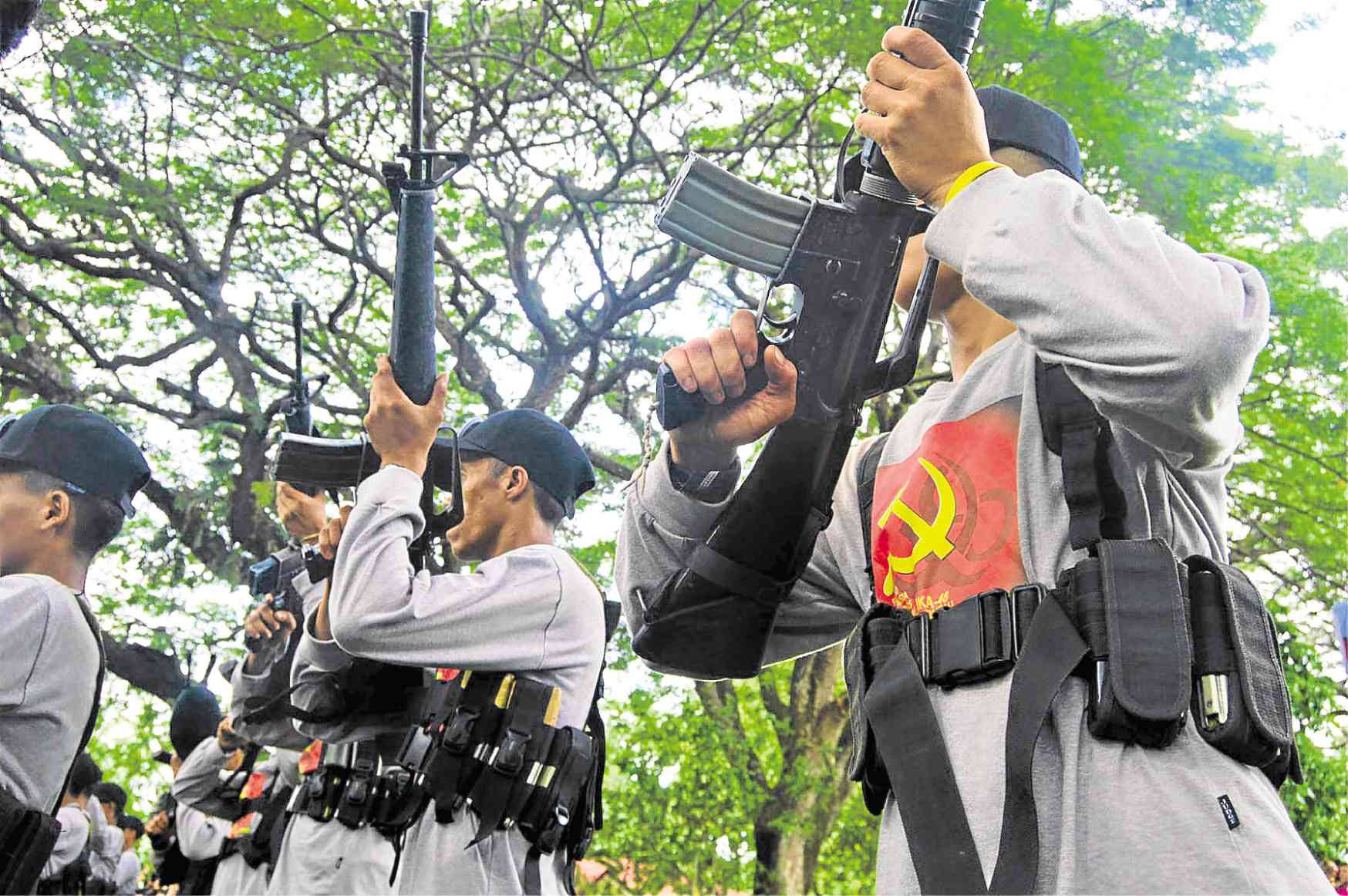
COMBAT-READY In this 2016 photo, New People’s Army rebels gather in Misamis Oriental province to celebrate the group’s founding anniversary. —JIGGER J. JERUSALEM
Interior Secretary Eduardo Año has asked local officials around the country to declare the Communist Party of the Philippines and the New People’s Army (CPP-NPA) as persona non grata (unwelcome or unacceptable) to show their support for the government’s fight to end the communist insurgency that has been waged for 50 years.
“Now is not the time to fear. Now is the time to take a stand against these [groups] to show them that we will not be a party to their plot against the government and our democratic way of life,” Año said in a statement on Thursday.
Threats
He assured that the government was intent on ending insurgency, as shown by the creation of the National Task Force to End the Local Communist Armed Conflict, which is led by President Duterte.
The government, in March this year, terminated the peace talks with communist rebels, who were represented by a panel of negotiators from the National Democratic Front of the Philippines.
Año cited Mayor Romy Salvame of Taytay, Palawan province, and other local officials who had stood by their passage of a May 2019 resolution declaring as persona non grata the CPP-NPA, despite receiving death threats from rebels.
Strong message
The secretary said the declaration would “send a strong message to the enemy,” assuring that the police and the military were prepared to give additional security to local officials who would receive threats.
“We cannot do it [end communist insurgency] on our own. We need the help of the local government units (LGUs), the public and all other stakeholders,” he said, noting that declaring communist rebels unwelcome in their localities would ensure that no support would reach the group.
Records from the Department of the Interior and Local Government (DILG) showed that at least 270 LGUs had declared the CPP-NPA as persona non grata through council resolutions. Among these are nine provinces, 29 towns, a city and 241 barangay.